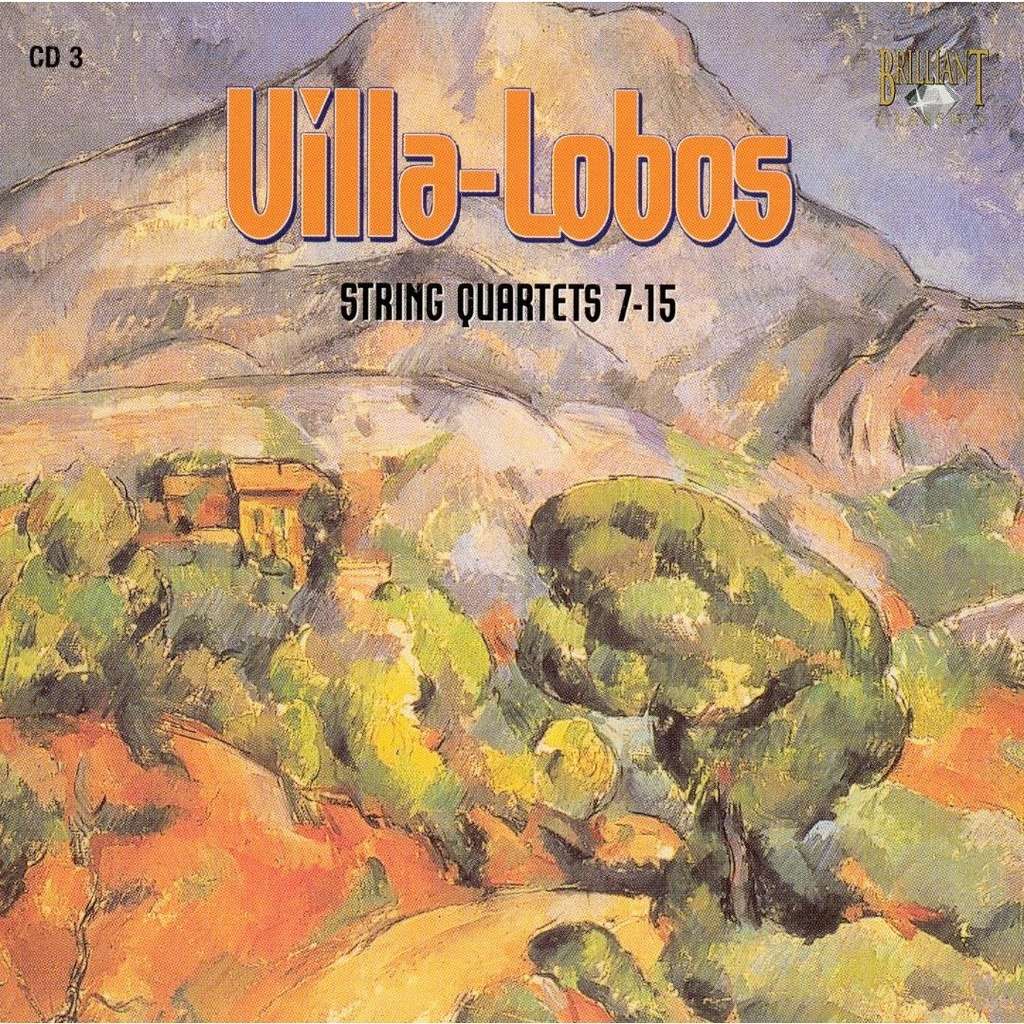Villa-Lobos: SQ 7 and 8
If I found Villa-Lobos' early odd-numbered quartets easy (1, 3, 5), and the even ones a touch more complex (2, 4, 6), these two on hand show a launching into a new direction for the composer.
String Quartet no. 7 moves towards modernism while still holding onto lush Romanticism. Many believe this particular quartet to be the Brazilian composer's finest in the genre, often mentioned in the same breath as Bartók or Shostakovich.
I am not sure I am ready to make such a pronouncement, but the composer's stylistic differences are stark. Luckily, even with heavier chromaticism, his motivic ideas are easy to identify at their return, often catchily so through the passing of melodies around the instruments. Plus, the unique rhythmic underlay is always there to ground the listener.
The rather slinky second movement captivated me most of all, with its long-breathed cello, lyrically singing around a syncopated rhythmic groove, occasionally interrupted by perkier material. One aspect I appreciate from Villa-Lobos in the string quartet genre is his love of the cello and viola, two instruments often relegated to supporting roles; not so in this set of works.
I will say, the Cuarteto Latinoamericano are very characterful with the third and fourth movements. The motives of the 3rd leap out at the listener for the grabbing, and the fourth movement tempo change into the 'Burlesco' are quite effective.
SQ7 is his longest as well, meaning a more drawn-out symphonic scope to the music. I can't say I was bothered by its length, but if you have trouble appreciating the composer's brand of dissonance at this stage in his career, this quartet could test one's patience. At first listening it did me, but I have come around to aspects of this work, with it landing as a natural progression from those earlier even-numbered quartets.
If SQ7 showed a progression towards heavier chromaticism, I am simply baffled by the music in String Quartet no. 8. The liner notes mention atonal qualities, yet to my ears Villa-Lobos never abandons tonality - ever; that said, boy is this quartet a tough nut to crack.
Probably the most obvious impression on me is how experimental SQ8 is. Villa-Lobos guides the players in portamenti, as he will continue to do in later quartets, but that combined with the many glissandi, pitch bends, and ponticello effects, really stretch his music into the modern era.
In general, I am lost in this music, but more of a terrifying dark woods lost rather than an amiable ramble in nature. As can often be the case, Villa-Lobos' structures are not the tightest, usually overcome by varying his trickiest harmonic settings and Brazilian rhythms; not as much here.
I do like how the opening movement unravels, and as always, it is easy to recognize Villa-Lobos' motivic ideas and their progression. The second movement allows some light into its music, albeit fleeting, with much more meandering than I care for. The third movement is a tangled web of motion and string effects, while the finale is unusually steady and gnarly for closing music from the composer.
Suffice to say, SQ8 will not be one I will revisit too often, but even on many re-listenings, one becomes comfortable with this music's patterns, allowing the brain some structural appreciation. This is not forbidding in the sense of atonality, but it is certainly serious, without the composer's occasional wit.
Additionally, the wiry quality of the Latin-American Quartet suits Villa-Lobos' brand of modernism well. Most of these performances are just loud however, so the listener is often assaulted with aggressive sound in most cases.
Works
String Quartet 7 (34.34)
String Quartet 8 (24.16)
Performers
Cuarteto Latinoamericano
Saúl Bitrán, violin
Arón Bitrán, violin
Javier Montiel, viola
Alvaro Bitrán, cello
Label: Dorian
Year: 1995-2000; 2009
String Quartet 7 (34.34)
String Quartet 8 (24.16)
Performers
Cuarteto Latinoamericano
Saúl Bitrán, violin
Arón Bitrán, violin
Javier Montiel, viola
Alvaro Bitrán, cello
Label: Dorian
Year: 1995-2000; 2009
Find more Villa-Lobos recordings HERE!




Comments
Post a Comment